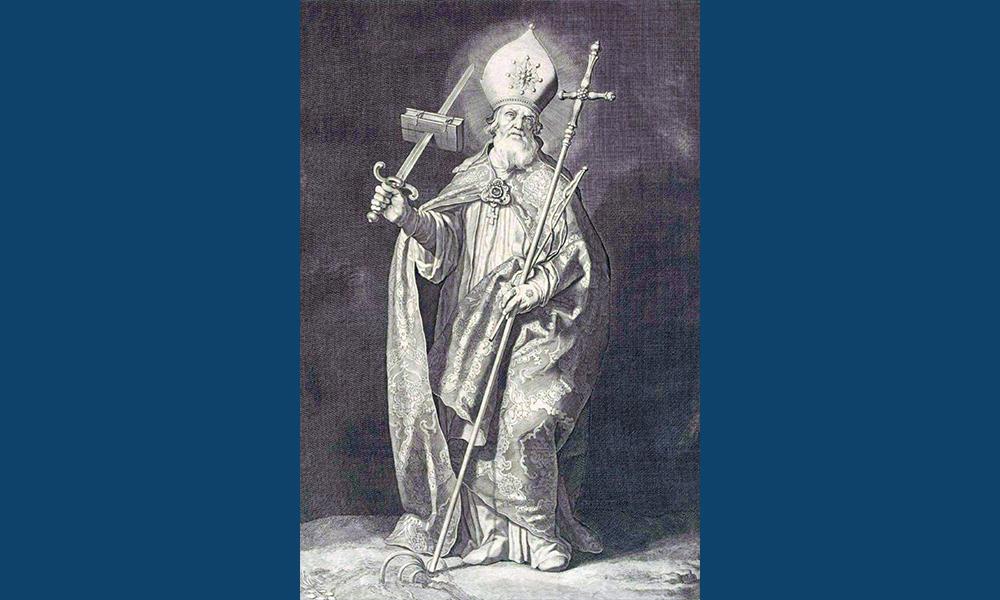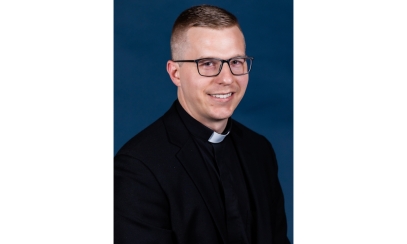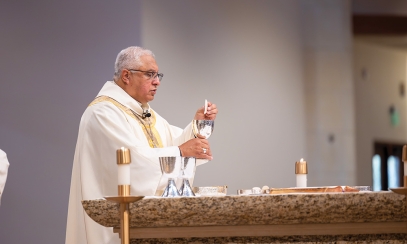
St. Boniface Knew Early on He Wanted to be a Missionary
How many of us knew what our life’s work would be when we were a young child? Winfrith, who was born in Devon, England, in about 680, was a young boy of 5 when the idea of being a missionary became his goal.
How many of us knew what our life’s work would be when we were a young child? Winfrith, who was born in Devon, England, in about 680, was a young boy of 5 when the idea of being a missionary became his goal.
After completing his studies at a monastery in Exeter, he taught at the abbey of Nursling near Southampton. There he became a priest in 710 and was known for his sermons and instructions. David Farmer writes in the Oxford Dictionary of Saints that he wrote the first Latin grammar produced in England.
But Winfrith wanted more than the classroom could offer. He went on a missionary expedition to Friesland (now Netherlands and Germany) in 716 and was a missionary under St. Willibrord for three years. He then went to Rome to get Pope Gregory II’s permission for another missionary effort in Germany. He changed his name to Boniface and began his lifelong association with the German people. In 722 he was consecrated regionary bishop for Germany and became the apostle of that country.
Editor Dom Basil Watkins writes in The Book of Saints that Boniface set up new dioceses and founded many monasteries for both sexes based on the Benedictine ideal. Boniface knew how to appeal to the Germans’ practical nature. Sean Kelly and Rosemary Rogers wrote in Saints Preserve Us! that “his gods were more powerful than their gods, and he proved it by chopping down an ancient oak sacred to the pagan god, Odin.”
For the next 10 years Boniface worked in Thuringia (Hungary). After he became archbishop in 732, Boniface asked for help from English missionaries. Among those who answered his call were St. Lull, St. Eoban, St. Burchard and Wingert. A group of women also came to help establish schools and monasteries. Everywhere Boniface and his missionary band went, they found the people ready to listen.
In 738 Boniface was made papal legate to Germany. Together with St. Sturmi (or Sturm), he founded the abbey of Fulda, which became a great monastic center for northern Europe. During the next several years Boniface spent a great deal of time preaching and converting people and engaging in diplomatic and political activity.
At the fifth Frankish council in 747, Mainz was chosen as the fixed metropolitan see, and Pope Zachary named Boniface primate of Germany. Boniface presided over Pepin’s coronation in France in 751. Boniface then decided to spend his last years working among the Frieslanders who had relapsed once more into paganism. He turned over the administration of his bishoprics to his disciple, Lull, and with some companions sailed down the Rhine.
They took their message to the tribes of northeast Friesland. Boniface was encamped with some followers at Dokkum when they were
attacked and killed by a hostile band. His body was taken to Fulda in Bavaria, Germany where it rests today.
In present-day Germany and Holland, Boniface is widely venerated as a monk, a reforming bishop and a very influential man of letters. His feast day is June 5.
Mary Lou Gibson is a freelance writer who loves to explore the lives of saints. She is a member of St. Austin Parish in Austin.



